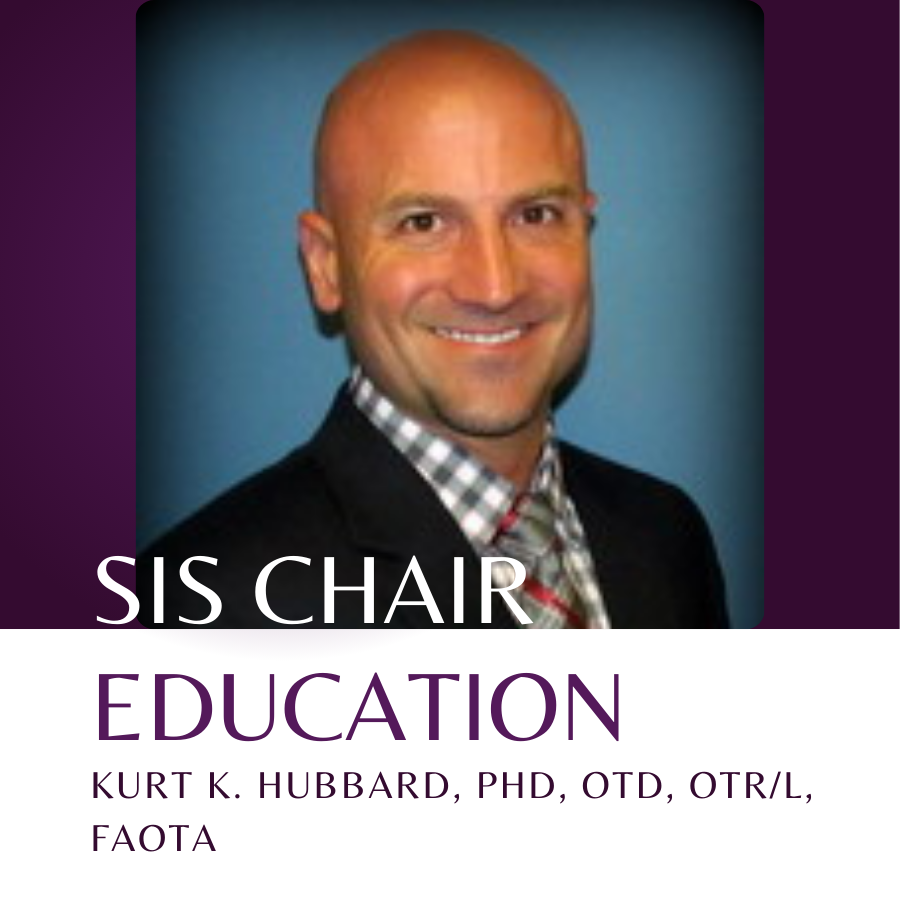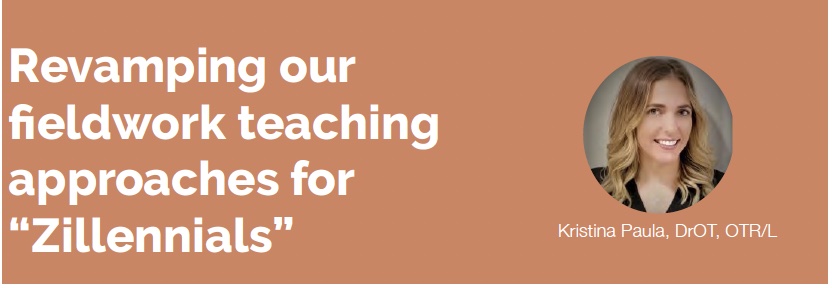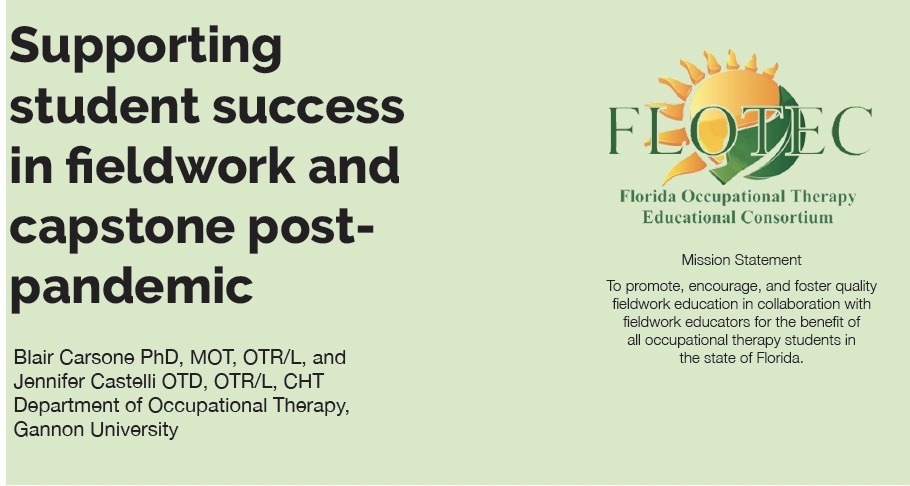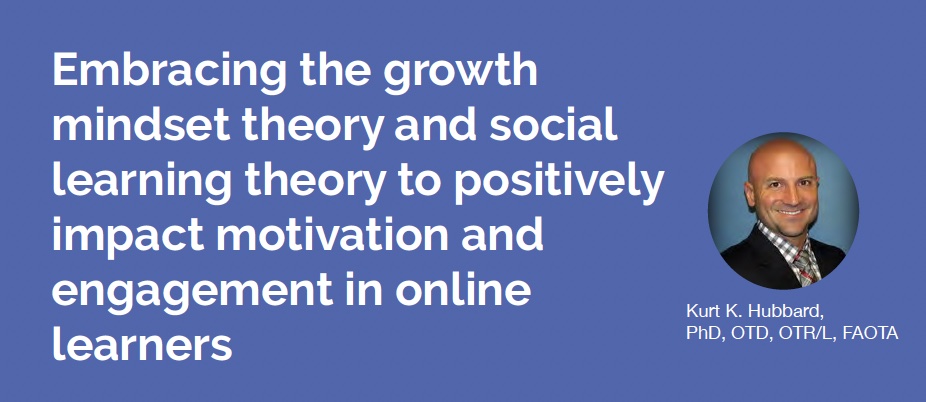Extracurricular Engagement in Developing a Sense of Belonging in Hybrid Students
 Extracurricular Engagement in Developing a Sense of Belonging in Hybrid Students
Extracurricular Engagement in Developing a Sense of Belonging in Hybrid Students  Extracurricular Engagement in Developing a Sense of Belonging in Hybrid Students
Extracurricular Engagement in Developing a Sense of Belonging in Hybrid Students  A critique of the meshing hypothesis:
A critique of the meshing hypothesis:
Using Shulman’s knowledge domain theory to facilitate effective instruction

Have you ever spoken to fieldwork students and felt like it went in one ear and out the other? Well maybe because it has. Let’s take a step back and consider it from the student’s learning perspective; it is not due to their unwillingness to learn. Most universities have adopted an adult learning style to meet the learning needs of students from younger generations, however, fieldwork educators may continue to use the same teaching strategies from previous generations. As these students’ learning styles have evolved, we cannot continue to propose the same teaching styles we used 15, 10, or even 5 years ago. As occupational therapists, we adapt our therapeutic use of self to meet the individual needs of our clients. Fieldwork educators must also adjust our therapeutic use of self to enhance our interactions with fieldwork students for their learning experience.


Online education refers to a learning process in which at least 80% of the course content is delivered via an online learning platform (Yeboah, Dogbey, & Smith, 2016). Hybrid education is a curriculum that has at least 50% of their delivery online. Increasingly, OT entry level programs are being delivered using hybrid curriculum. In addition, post-professional OT programs are primarily online in education delivery. According to the literature, enrollments in online education have grown rapidly in the past decade throughout postsecondary education (Jaggars, 2014). This growth offers learners opportunities, but also presents challenges for learners enrolled in online courses. For instance, despite the rapid growth in enrollment for online distance education courses, learner persistence and academic performance in online courses is often much lower than in traditional non-online courses (Croxton, 2014). Furthermore, according to Kauffman (2015), attrition rates remain high for online education courses as compared to traditional non-online distance education courses. Online education research studies have identified internal factors that lead to the underperformance for online learners (Croxton, 2014). These internal factors include lack of motivation, challenges with self-determination, and issues with not experiencing online engagement (Croxton, 2014). To this end, online college students who experience the least amount of motivation and engagement are said to be at a greater risk of dropping out (Pruett & Absher, 2015). It is of interest to identify ways the faculty can have an essential role in improving the motivation and engagement of online learners moving forward.
 Lymphedema Basics: Increasing Client Occupations
Lymphedema Basics: Increasing Client Occupationsby: Candice D. Young E.d.S., COTA/L, CLT
Increasing independence in occupations is what occupational practitioners are known for. For many experienced clinicians, it is a daily routine recognized through experience through evidence-based practices. However, many clients suffer from diseases uncontrolled by either primary or secondary causes resulting in delayed healing or ongoing therapy services. The growing anxieties of past medical history, congenital conditions, or surgeries are not always straightforward nor understandable, and the complications may be unknown. Lymphedema could be lurking in the foreseeable future for many with no current cure and awaiting breakthrough treatments (Schaverien and Aldrich (2018).
 FOTA21 Conference: Student Poster Submissions
FOTA21 Conference: Student Poster SubmissionsHere are some tips to follow when completing your student poster submission:
First and foremost, make sure you submit your poster under student and not professional. This will help to decrease any added stress closer to conference when you realize you may have been placed in the wrong group. The conference committee goes off what you submit and will place your poster in the group accordingly.
Shirish Lala, EdD(c), MHS, OTR/L Academic Fieldwork Coordinator Daytona State College
The pursuit of acquiring literacy is intentional, purposeful, and deictic, and subject to change based on the contextual demands (Leu, Kinzer, Coiro, Castek, & Henry, 2013). Literacy can be loosely defined as a construct that provides an individual with the ability to read, write, and integrate information across a broad range of platforms in order to identify, recognize, and implement knowledge for the purpose of personal,social, or financial gain. The U.S. Department of Health and Human Services describes health literacy (HL) as “the degree to which individuals have the capacity to obtain, process, and understand basic health information and services needed to make appropriate health decisions” (National Network of Libraries of Medicine [NNLM], 2011). However, according to the Centers for Disease Control, low HL is a serious public health issue affecting nine out of every ten adults (Centers for Disease Control [CDC], 2018a). At least 50% of the adults without high school education are at risk for experiencing severe health crises including medication errors, increased hospital visits, higher mortality, and greater health expenditure as compared to those with adequate HL levels (Brach et al., 2012).
Amazon searches starting from www.flota.org benefit FOTA!